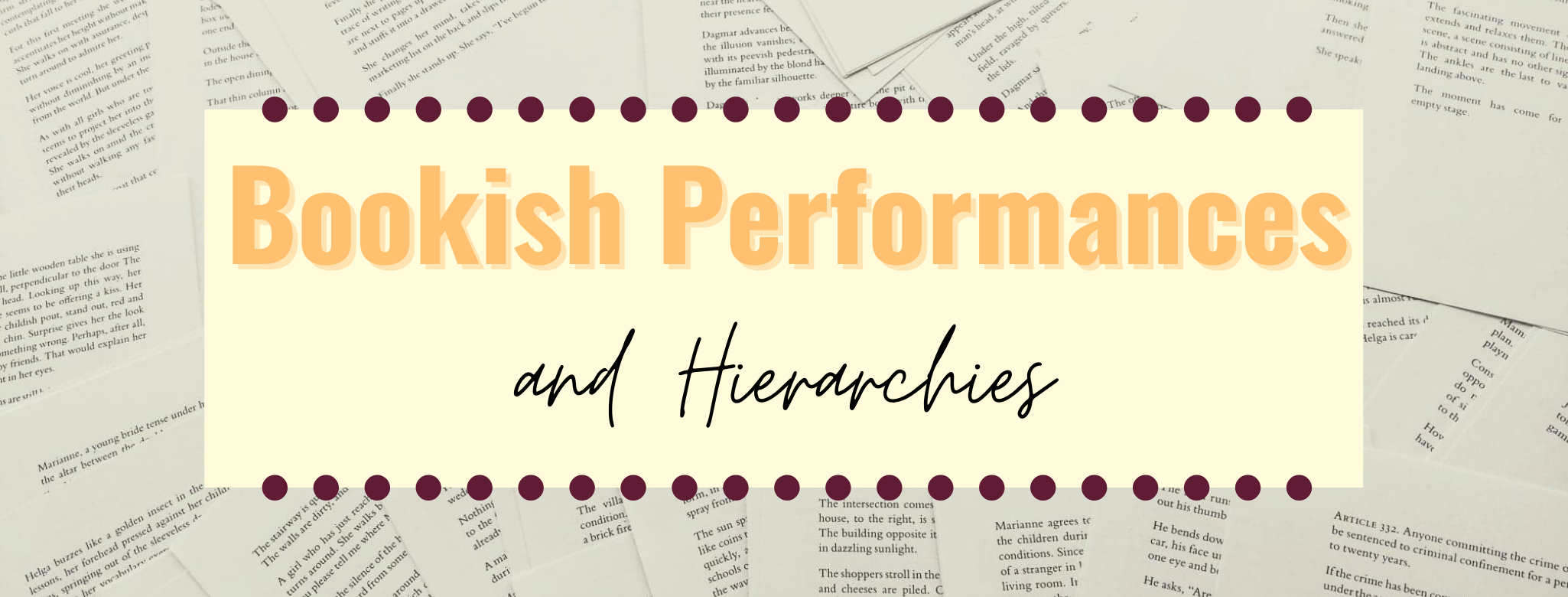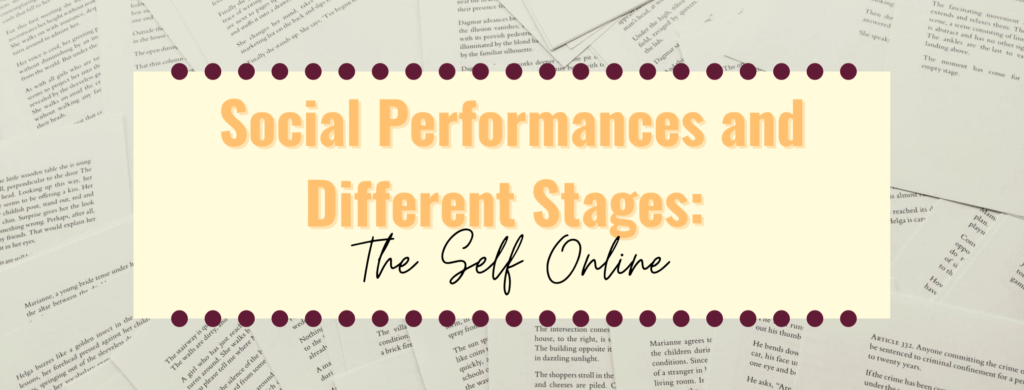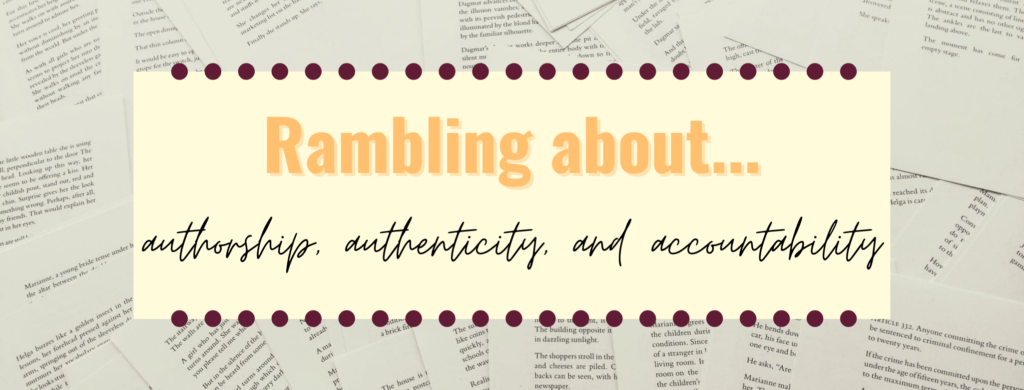And, just like that, we’re almost at the end of April. How did that happen? I’m deep in the discussion chapters of my dissertation, simultaneously feeling pulled by a million different directions while also seeing the many threads come together. It’s becoming… something. But it has resulted in me seriously neglecting my author performance, for which I apologise. It’s natural – I’ve mentioned the issues of salinity in identity performance previously – but I do wish I could be better. I have several half completed blog posts that just don’t feel like what I want to post on the day. So, instead, here I am writing another one on bookish performances!
Bookishness
My current dissertation chapter discusses authority. It’s kind of in the name, author, right? In the early history of writing, those who created texts naturally held authority – from kings, laws, and gods. Skipping forward and the notion of the solitary genius author forms, at least in part to solidify copyright, to give an owner to imaginary worlds. With the internet, however, the author is no longer solitary. They need to connect to their readers and, in turn, this places greater emphasis on a kind of shared authority. Readers are more able to ask authors for more, whether this is more information, better representation, or just… more. (Whether this is always a good thing or not is definitely a question). Our increasingly online book culture has disrupted the traditional hierarchies of the book world.
In my research, I examined traditionally published, self-published, and e-lit authors, which naturally means looking at the effects of this online shift. And, as I investigated authority within my sampled authors, an interesting pattern emerged. Traditionally published and self-published authors, it seemed, were decidedly bookish, but in different ways. For self-published authors, it was general – memes about loving books and writing – and then links to Amazon sales pages. For traditionally published authors, it got more interesting. Their bookishness came through specifically in relation to their texts by promoting physical copies and special editions (from decidedly non-Amazon outlets). We see this obsessive bookishness elsewhere, whether on publisher websites, the rise of book subscriptions and special editions, and our endless need for book-related merchandise. Pressman suggests that this “signifies a culture grappling with its own increasing digitisation” (2020) – a point solidified by the indifferently bookish e-lit authors, whose texts are ‘born digital’.
Bookish Identities
Books are powerful. There is something to be gained from appearing well-read, as shown by the prevalence of Zoom backdrops which feature bookshelves. I mean, we’ve seen this before in interviews with queens and politicians who inevitably place themselves in front of a bookshelf for press conferences. It’s just on a larger scale. Have we read all of these books? Ashley Tisdale recently came under fire for admitting that she filled her bookshelves purely for a house tour, props added to improve the performed identity in showing off her personal space. Maybe she will read the books, or maybe she has read them digitally previously. Either way, people didn’t like her admission of the books as props in her ‘behind the curtain tour’.
I love books. But I can also accept that books are, to some extent, part of my identity performance. I’m a writer, therefore I must love books. In high school, being bookish was a thing I clung to. If I’m fully critical of past me, books were not only an escape, but also a way to explain why I didn’t fit in. Being bookish made me better than other people, performed through reading faster than anyone else in class, knowing more about Harry Potter than anyone else, and making sure to read the ‘right’ books to match the impression I was trying to give. I love books but they are still props to my identity.
Bookish Hierarchies
Books are a great, subtle way to signal identity and build connections with other people. My Kindle cover, for example, probably looks unobtrusive to someone not in the know. Sure, it looks like a book – wonderful! But someone who shares my reading tastes might notice that it resembles first editions of the Stravaganza series. Instant best friends! There’s an interesting elitism to this though, as shown by the Tisdale example. Our expectations of bookishness echoes the whole ‘fake gamer girl’ accusations from years ago (that probably still happen). A hobby develops a social hierarchy and you must prove your devotion to it. Sure, you love books, but can you be a real book fan if you don’t have book-themed socks and a passage of War and Peace memorised? Books offer cultural capital, both as objects and as acquired knowledge, thus they can be used as a way to display authority or power.
I don’t fully know how I feel about the ways bookishness plays into these hierarchies. On the one hand, I have a gut reaction against books being used to fuel a kind of elitism. It always falls into certain things being classed as more ‘worthy’ than others and, if we’re talking about the book industry, this usually privileges the interests of heterosexual white men. And with reading, isn’t what the reader gets out of it more important? But, on the other hand, I find myself falling into the same trap. I’ve been listening to so-called canonical texts on Audible because, as a book lover, I feel like I should. I unconsciously judge the book shelves we see in celebrity backgrounds, trying to decide if they’ve actually read the books they display or not. And, if someone offered me an early edition hardcover of Harry Potter with sprayed edges – despite my feelings for JKR – I’d struggle to say no.
So, readers, tell me your bookish sins. Anyone bought anything pretty recently?



